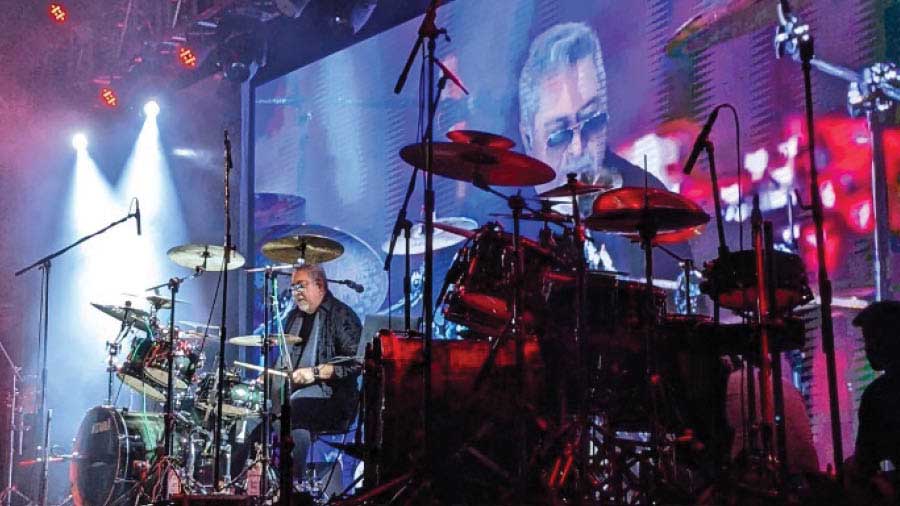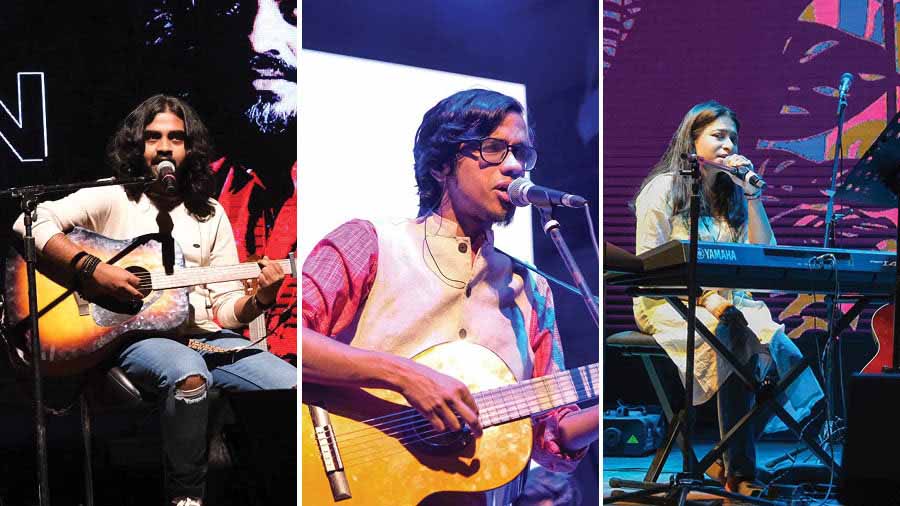On a mildly chilly December evening, a gathering of top-tier Indian drummers got together at the Calcutta International Club, marking the commencement of the inaugural Kolkata International Drum Festival. Curated by Grammy-nominated Pandit Subhen Chatterjee and his son Sambit Chatterjee, the festival aims to bring drums into the foreground by showcasing some of the most outstanding Indian percussionists, transcending the traditional realm of timekeeping.
Talking about the festival and its inception, Pandit Subhen Chatterjee highlighted the aim of bringing a unique music festival to the city, saying it’s more than drums and tabla — it's a special percussion showcase.
“I began playing fusion in 1985 with my band Karma on the global stage and constantly sought innovation. My son Sambit and I were contemplating how to introduce a never-before-seen music festival to the city. The aim is to attract a diverse audience specifically interested in percussion. Beyond traditional drum sets, this festival will feature exceptional drummers and the finest percussionists from India,” he expressed.
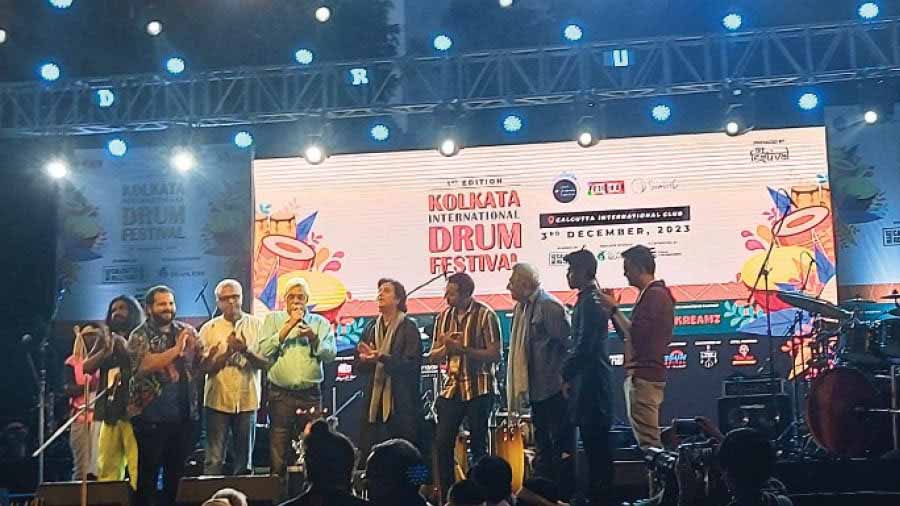
Curated by Grammy-nominated Pandit Subhen Chatterjee and his son Sambit Chatterjee, the event aimed to bring a different music festival to Kolkata
The festival united the city's musicians and music enthusiasts despite its niche appeal and theme. Sambit, an excellent drummer and the host, referred to it as more than a community, calling it a ‘brotherhood’ to unite the drummers, creating an atmosphere akin to a family gathering.
Nondon Bagchi, a pioneering figure for being the drummer of various seminal Indian rock groups in the 1960s and ’70s, inaugurated the concert.
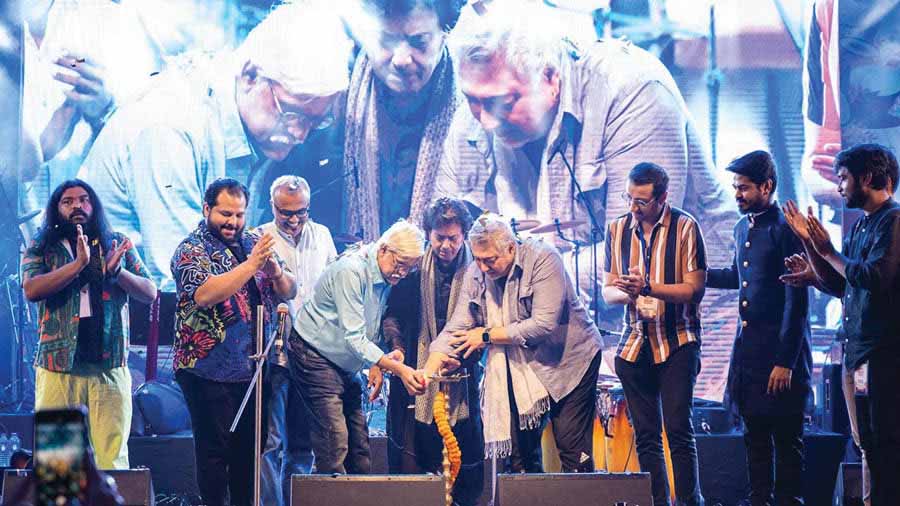
Nondon Bagchi lighting the inaugural lamp
The evening kicked off with the thunderous performance of the Dhamsha Madol Group, setting the stage on fire. Gourab Chatterjee, affectionately known as Gaboo, claimed that his band, GC and the Giants, was just a week old. They enthralled the audience with compositions inspired by Gaboo’s favourite tunes.
Viveick Rajagopalan, rooted in the Carnatic tradition, delivered a unique fusion performance accompanied by Kolkata’s Sayar Mitra on bass. Vox Box, a group representing India on the international beatboxing stage, held every beat without any conventional instruments, showcasing their rhythmic mastery.
The showstopper of the evening was the legendary Ranjit Barot, a star in the world of percussion, who is known to have aided illustrious artistes like John McLaughlin and AR Rahman. From composing to singing, directing to designing Bollywood chartbusters, his influence spans almost five decades. Kolkata’s beloved guitar guru, Amyt Datta, felicitated Ranjit with the Lifetime Achievement Award on behalf of the festival. Ranjit’s performance summarised his genius, to say the least.
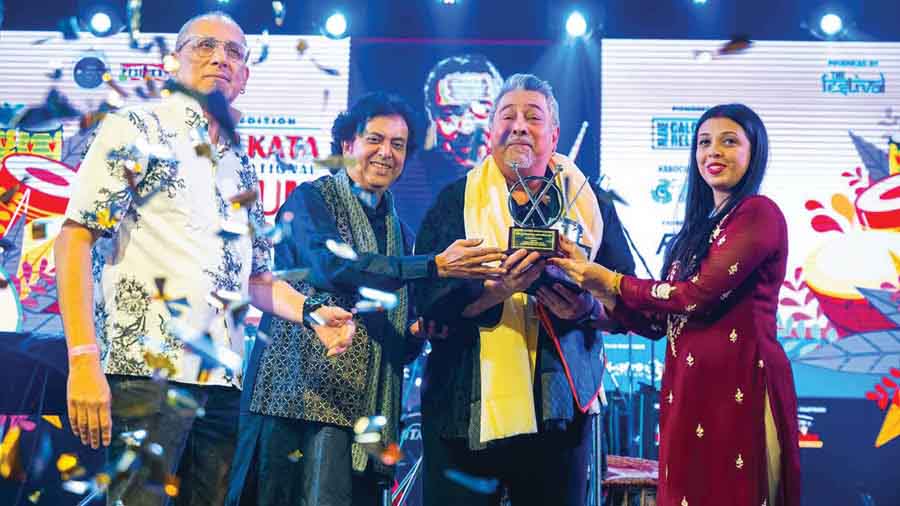
Ranjit Barot being presented with the Lifetime Achievement Awarded
Ranjit, shedding light on the evolving drum and percussion scene, noted, “Drums are now more prominent and respected, no longer relegated to a side role. Collective efforts have led to dedicated drum festivals in Mumbai, Bangalore, and now Kolkata, establishing the drum as a highly prominent instrument in the music landscape.”
Expanding on his creative process, he added, “I'm immersed in a constant musical mindset, dedicated to music around the clock. It's not just my profession; it's my essence. My creative process is diverse and not bound to a specific discipline. Melodies may emerge from various sources — internal inspiration, external sounds, piano exploration, or observing a musician like Mulligan. There's no fixed method; creativity flows from multiple avenues.”
Distinguished drummers Gino Banks and Darshan Doshi electrified the festival with their stellar performances.
Gino Banks, known for his impeccable drumming, has played alongside prominent artists such as Ustad Zakir Hussain and Shankar-Ehsaan-Loy, making him a revered name in the Indian music scene.
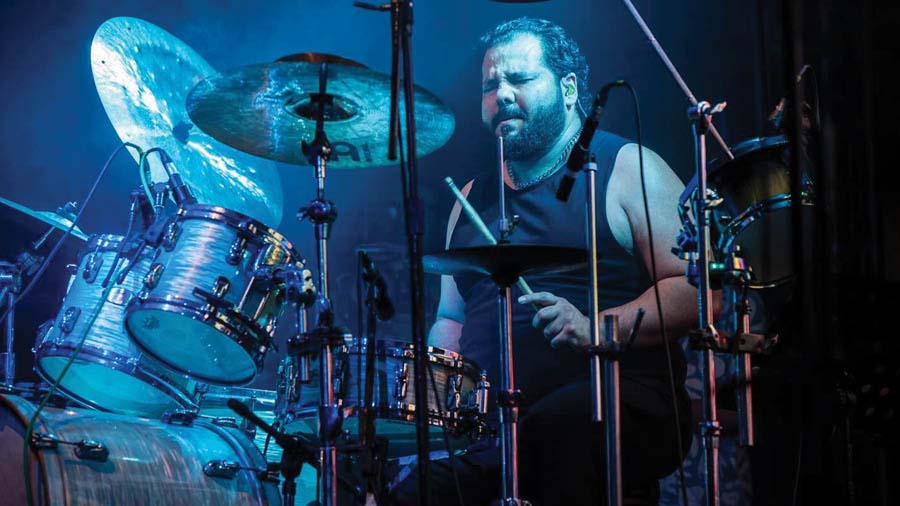
Gino Banks performing at the festival
Reminiscing about his early music days in Kolkata, Gino acknowledged the nationwide growth of the drumming scene. He shared, “I used to play here in Kolkata with a band called Skinny Alley years ago, a crucial part of my early music days. Playing with the Skinny Alley folks was a big deal for me at the beginning of my musical journey.”
Gino Banks reiterates the role of technology in music creation, stating, “It's crucial to remember that technology is a tool for creating music; it shouldn't overshadow your artistry. As technology advances, it facilitates easier access to diverse sounds, concepts, and song arrangements. However, it's essential to maintain the organic aspect of performing and playing an instrument. We utilise technology to enhance, not replace, the artistic process.”
Darshan Doshi, a virtuoso in jazz and rock, has made significant contributions to the music industry through his association with acclaimed bands like Indus Creed and contributions to Bollywood soundtracks by Amit Trivedi and others.
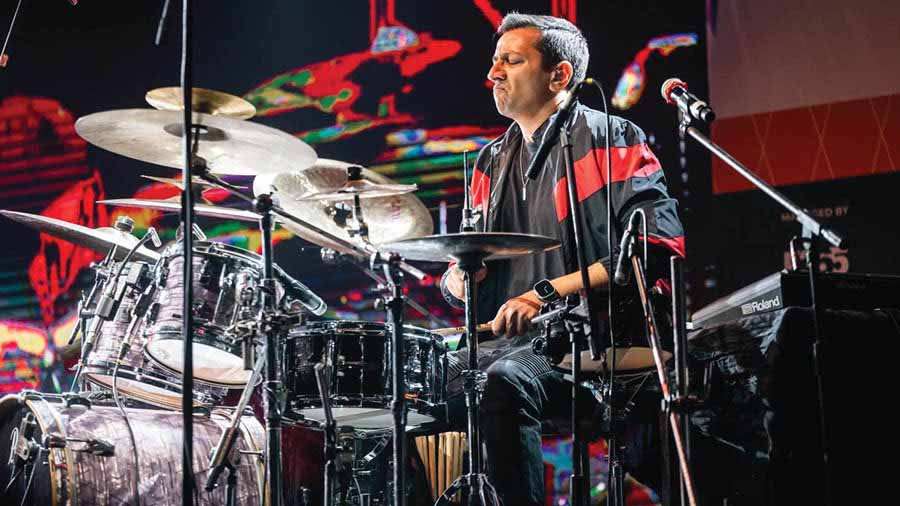
Darshan Doshi performing
Speaking about his musical approach, Darshan shared, “As musicians, our focus is on creating the music we genuinely want. While we contribute to commercial albums and collaborate with various artists, when I work on my music, it's a personal endeavour. I prioritise creating something authentic and meaningful, not driven by external expectations. It's crucial for all musicians, especially those in original music, to stay true to their artistic intent and not be swayed by external pressures or trends.
He emphasised the importance of exploring diverse music genres for inspiration, stating, “Musicians must continually explore diverse music genres for fresh inspiration. As a drummer, my exposure to Indian classical music for 15 years has influenced my compositions. Listening to various styles, recalling childhood favourites, and appreciating favourite bands all contribute to subtle inspirations. The process of learning and absorbing music on a personal level is invaluable.”
Gino and Darshan’s brilliance added a unique dimension to the festival, leaving an unforgettable imprint on the audience.
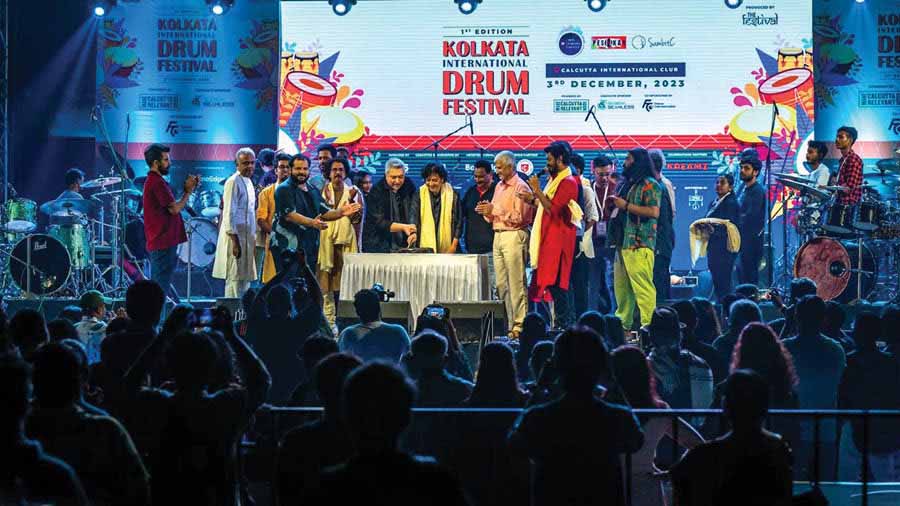
Closing ceremony
The concluding act of the evening at the Kolkata International Drum Festival was the Karma Fusion Bandish, merging Indian classical beats with Western instruments. This performance, featuring the curator duo of father and son on stage, was commendable.
Wrapping up the festival was a surprise collaboration, where Gourab Chatterjee, Viveick Rajagopalan, Gino Banks, Darshan Doshi, and Ranjit Barot joined forces with Karma Fusion Bandish, delivering an energetic and skillfully synchronised performance.
